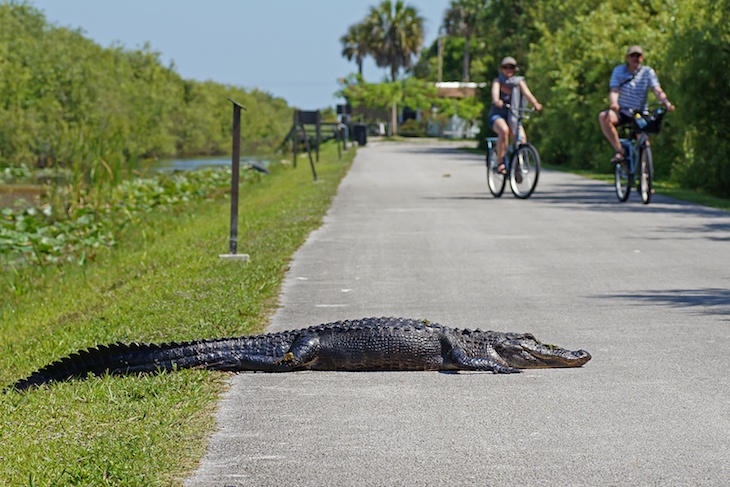Over the past decade Lauren Groff has written three novels; she now returns to the short story form in this, her second collection. Last year she was named as one of the best young American novelists by Granta, a reputation that’s been growing since the 2015 publication of her critically acclaimed Fates and Furies, a sprawling portrait of a marriage nominated by Barack Obama as his book of the year.
Groff, originally from New York, lives in Florida, and these 11 stories take that state as their focus — a place where panthers prowl perimeters, 15ft-alligators glide through the swamps and air-conditioners ‘crouch like trolls under the windows’. Almost all her protagonists are women, who try to navigate a treacherous exterior landscape alongside their own dissatisfactions, hopes and anxieties.
Heavy weather dominates. In ‘Eyewall’, the narrator welcomes the ‘hurricane’s bruise’ thundering towards her house, and stands serenely, ‘a captain at the wheel’. Terrifying in its destruction, the storm’s power is tempered by the playfulness of the imagery: ‘We watched the world on its bender outside. My beautiful tomatoes had flattened, and the metal cages minced away across the lawn, as if ghosts were wearing them as hoop skirts.’
Motherhood is another carefully explored theme: in ‘Ghosts and Empties’, a woman wanders the dark streets of her neighbourhood, happy to be away from her husband and children, listening to the ‘wildly singing frogs’ and peering in at scenes of domesticity. She sees her contemporaries ‘bent like shepherdess crooks, scanning the floor for tiny Legos, or half-chewed grapes, or the people they once were, slumped in the corners’. In ‘Salvador’, a woman ‘at large’ escapes the confines of life as the primary carer of her sick mother in Miami, leaving Florida for a spell of reading, flings and burgers. There is a political element to these explorations, too: in ‘Snake Stories’ the protagonist mourns the fact that climate change will prevent her sons from experiencing their once-wild environment: they can’t explore coral reefs if they’ve all disappeared.
Groff is also interested in the history of this turbulent area that she now calls home. In ‘Flower Hunters’, the narrator takes comfort in the writings of the naturalist William Bartram, who travelled through the state in 1774, recording his observations. ‘Like Bartram, she was once a northerner, dazzled by the frenzied flora and fauna here, but that was a decade ago.’ Then, on discovering a sinkhole emerging in her own back garden, she realises that her surroundings can still surprise her.
These psychological stories, whose impeccable structures are at odds with the chaos they often describe, provide glimpses into a variety of lives under the same tempestuous sky.























